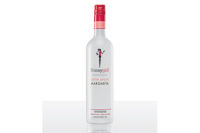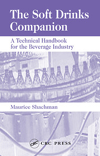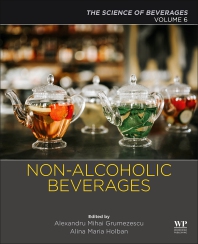Non-compete agreements important for protecting beverage secrets
Key factors needed to uphold non-compete and confidentiality agreements

Your recipes and methodologies are the most important assets of your business. If this information is disclosed to third parties, it can lead to financial distress because a competitor could imitate your product line and ruin your brand’s uniqueness and reputation. To try to avoid this issue and other disputes that could arise with former employees, it is critical that employees agree to non-compete and confidentiality agreements to protect your trade secrets and methodologies.
Several factors should be taken into consideration when drafting and negotiating a non-compete agreement to avoid unnecessary time and costs in fighting potentially unenforceable terms. Although every state’s criteria differ slightly, the following factors typically are applied in deciding the enforceability of these agreements:
Protecting legitimate interests
Although there is no legitimate interest in a business solely preventing competition, a business does have a legitimate interest in protecting its trade secrets and confidential information.
Matters of general knowledge within the industry might not be classified as trade secrets or confidential information entitled to protection. However, when an employee, such as a brewmaster or distiller, is placed in a special position to learn the trade secrets and methodologies of the core of your trade, the business has a legitimate interest in seeking protection through a non-compete agreement and enforcing the same in the event the employee leaves the business and violates the terms of the agreement. This means that a business can enter into a contract whereby an employee agrees that he will not take your confidential recipes and methodologies with him after he is no longer employed by the company.
Avoid undue hardship
Because non-compete agreements can hinder the ability of a former employee to gain new employment, the agreement must be narrowly tailored to avoid imposing an undue hardship on the individual. Three elements are considered in deciding whether an employment agreement provides an undue hardship:
First, the duration of the agreement is considered. The agreement cannot force an employee to forgo brewing beer or distilling spirits for an indefinite period of time. Although each case will be viewed individually, generally, the shorter the duration of the agreement, the better chance that it will be upheld.
Next, the geographic limitations of the agreement are considered. The agreement must be reasonable with respect to limiting the area where the employee cannot work. The agreement must spell out where the employee cannot work, whether it is the same state or a number of states or miles from the business. The vicinity immediately surrounding the place of employment is generally considered reasonable. However, when expanding beyond that area, the onus will be on the employer to show that widening the geographic scope is necessary to protect the employer’s competitiveness in the market. This determination is again viewed individually and depends on the facts and circumstances surrounding the situation.
Finally, the type of employment and line of business is considered. Generally, the non-compete agreement cannot limit the former employee’s ability to find any work in the brewery or distillery trade because public policy supports that an individual should be able to utilize his skill set in finding a new job. To avoid having a court limit the enforceability of the agreement, it is important that the protection set forth in writing is not too vague or over-reaching.
Protecting the public
An agreement cannot be injurious to the public. This analysis looks at how the public might be hurt if the agreement is enforced, such as affecting the availability of the entry of goods into the marketplace and stifling research and development programs. However, this factor should not be a major concern in the beer and spirits context.
Additional protection
Trade secrets and confidential business information also can be protected through a confidentiality agreement. These agreements can be integrated into the employee’s non-compete agreement or a separate agreement. Confidentiality agreements generally are not scrutinized to the extent of non-compete agreements. However, the language used must be drafted meticulously to avoid disputes.
In summary, myriad issues and considerations need to be taken into account when protecting your business. However, in the brewery and spirits trade, nothing is more important than protecting your product’s recipe and methodologies. A skilled attorney can help review and analyze the unique aspects of your business in order to determine which types of enforceable restrictions can be placed in non-compete and confidentiality agreements. Also, if you already have non-compete and confidentiality agreements in place, they should be reviewed periodically to ensure that they comply with new legal decisions.
Looking for a reprint of this article?
From high-res PDFs to custom plaques, order your copy today!








